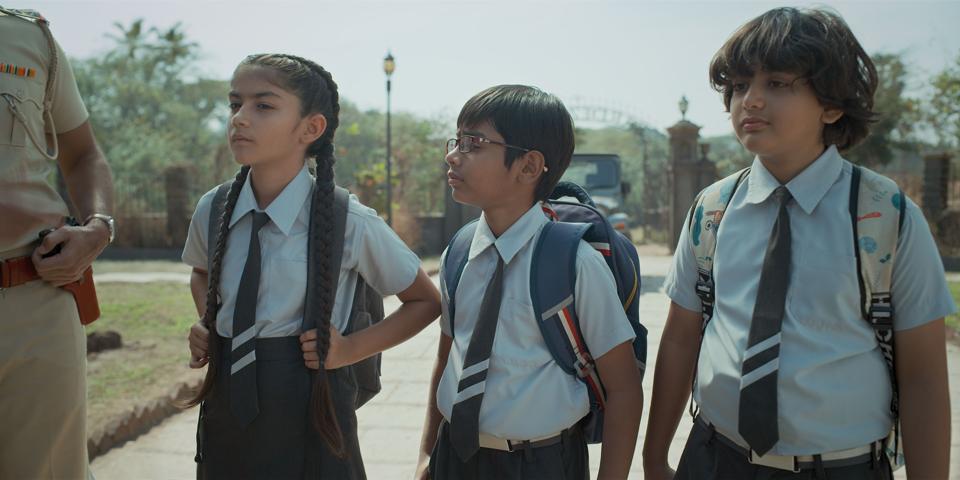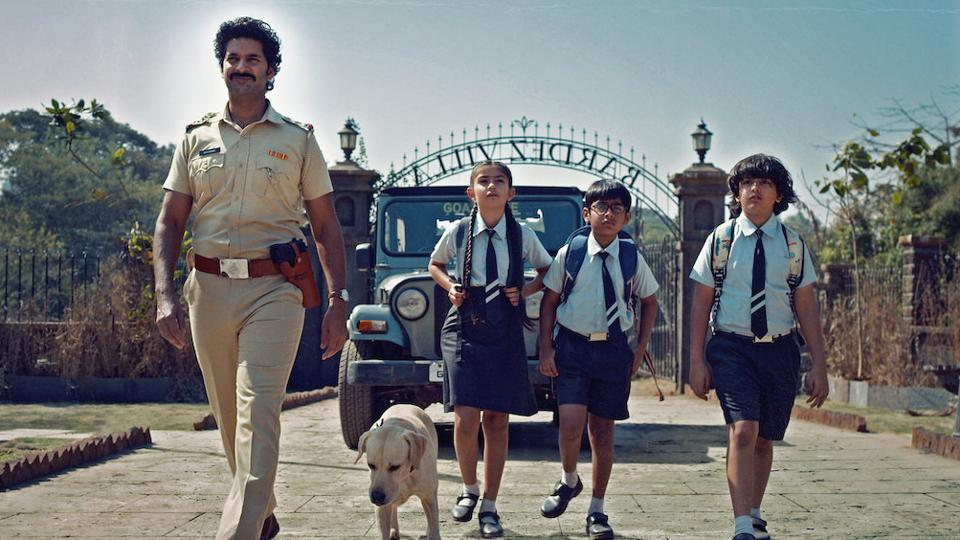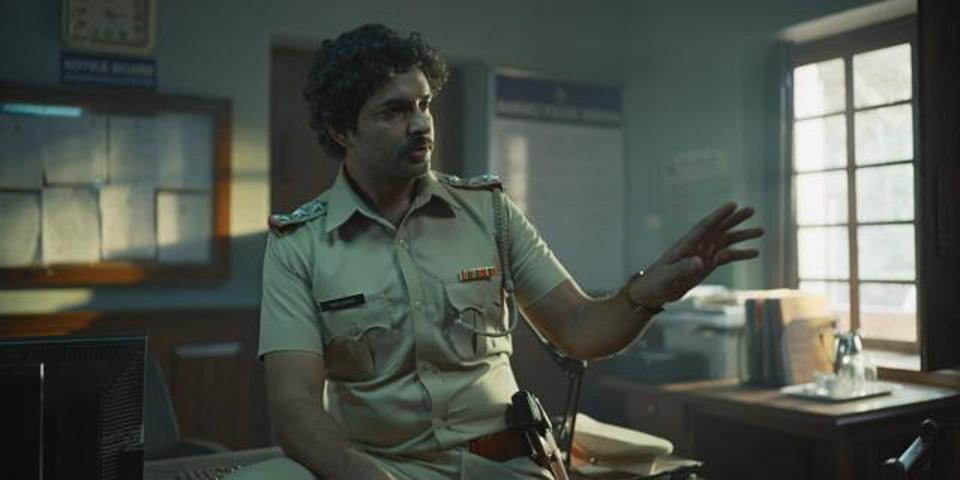Typewriter
Director – Sujoy Ghosh
Cast – Purab Kohli, Palomi Ghosh, Jisshu Sengupta, Aarna Sharma, Mikhail Gandhi, Palash Kamble, Aaryansh Malviya
Rating – 3.5/5
It would help tremendously if while watching Typewriter, the new Indian original series on Netflix, you convinced yourself that you’re watching a live-action Famous Five adaptation instead. Created, written and directed by Sujoy Ghosh, the five-part series combines elements of Enid Blyton with the early work Steven Spielberg and Stephen King, serving up a nostalgic story that should appeal to fans of old-fashioned mysteries, as well as those that have grown up on the Conjuring films.
As niche as it may seem at first glance – it is a Goa-set ghost story, after all – Typewriter has a rare cross-generational appeal that most studios would kill for. But Netflix has released it with relatively little fanfare, sandwiched between the eerily similar Stranger Things – surely in a move to piggyback on its popularity – and the decidedly more adult-oriented Sacred Games.
Typewriter isn’t quite the horror series that has been advertised in the trailers. It is, instead, a throwback to the stories that Ghosh no doubt grew up on, about intrepid Bengali sleuths, and brave children who take it upon themselves to cure the world of arrogant adults.
The central trio of kids in Typewriter – they are later joined by a fourth – calls itself the Ghost Club, and holds regular meetings to discuss the kids’ favourite horror author, and to plan investigations into local paranormal activity. They even have their own version of the Secret Seven’s ‘shed at the bottom of the garden’ – an old boathouse, complete with a cantankerous caretaker – and a doggy companion who steals a couple of key scenes.
Bafflingly, though, for a show that ostensibly features four children as its protagonists, it isn’t really suitable for family viewing. There are infrequent moments of graphic violence, as well as the odd F-bomb, dropped in unexpected moments by some of those pesky adults. These instances stick out like non-villainous academicians in a Feluda novel, and they made me wish, with increasing dismay, how much better it would have all been had Ghosh had picked a lane and stuck to it. Typewriter would’ve been a more efficient show had it fully surrendered to some of Ghosh’s trademark playfulness, or, conversely, if it had more convincingly embraced its horror origins.

The Ghost Club is called into action, armed with nothing more than an innocent sense of wonder and an encyclopaedic knowledge of the Ghostbusters movies, when a new family moves into the mysterious Bardez Villa. The creaky old mansion has had a rather intriguing past – the famous author Madhav Matthews wrote some of his most popular books there, sequestered in his study, bent over his trusted Remington typewriter. And it was at the Bardez Villa that Matthews was rumoured to have developed a fascination for the occult, which may or may not have led to the suicide of his daughter. Matthews died under mysterious circumstances on the same day that he began writing his seminal book, The Ghost of Sultanpore.
So why would a regular old family move into a house that is famous all over town for its troubled past? The answers, as the Ghost Club soon finds out, may lie with a member of the arriving family, Jenny, who might have a connection with Matthews, and the house.
For starters, the location itself is wonderfully realised – but you’d expect that of Ghosh, who brought such a robust flavour to Kolkata in his 2012 film, Kahaani. Of course, the villa itself is an intricately designed set, and not a real mansion on the Konkan coast, but you really can’t tell. It isn’t as ominous as Hill House (from last year’s grand horror series The Haunting of Hill House), and the decision to set a majority of the show in broad daylight certainly robs the story of some valuable atmosphere, but then again, Typewriter isn’t trying to emulate classic horror.
In moments of peril, when you’d expect it to go ‘boo’, it chooses to make a joke instead. Colourful supporting characters drop dead like tenpins, and some, like Jenny’s husband, are simply written out of the story when they have no longer have a purpose to fulfil. There is lore, but it is never overwhelming; the performances, meanwhile, have one foot firmly in the world of Scooby Doo. This is a compliment, by the way.
Like Kahaani – and indeed, most of Ghosh’s films – Typewriter, too, drinks thirstily from the shrine of Satyajit Ray. But the tone, like its ambiguous title, is difficult to pin down. I sincerely hope it finds its audience.

